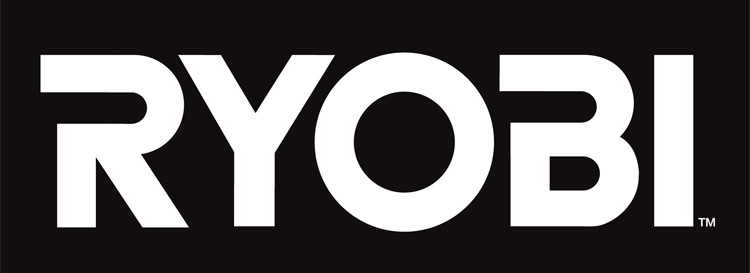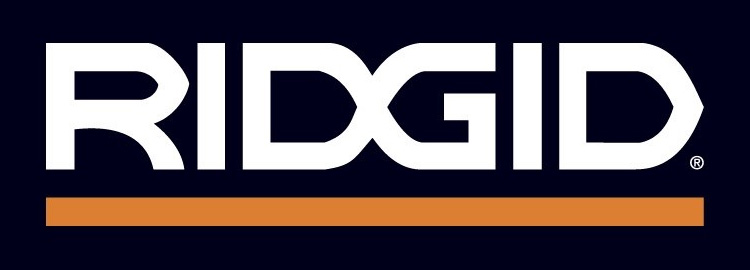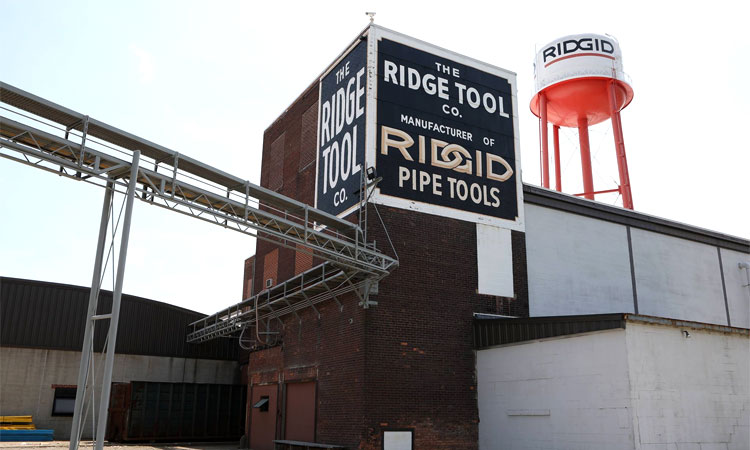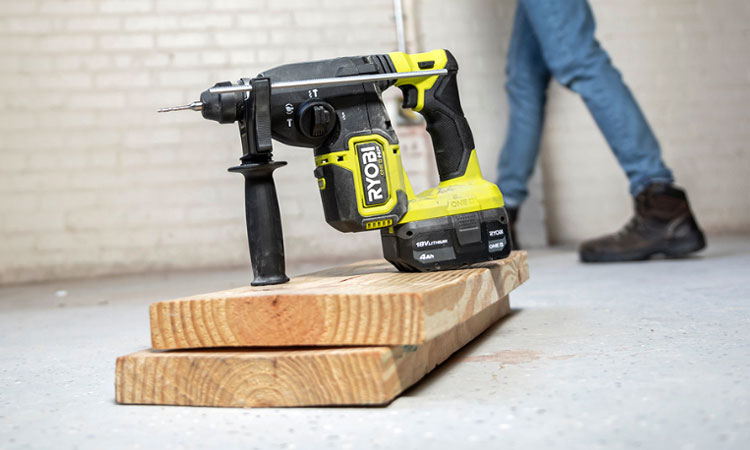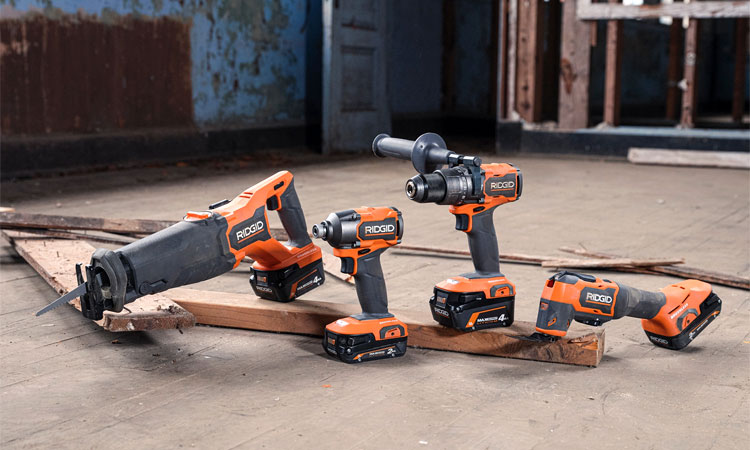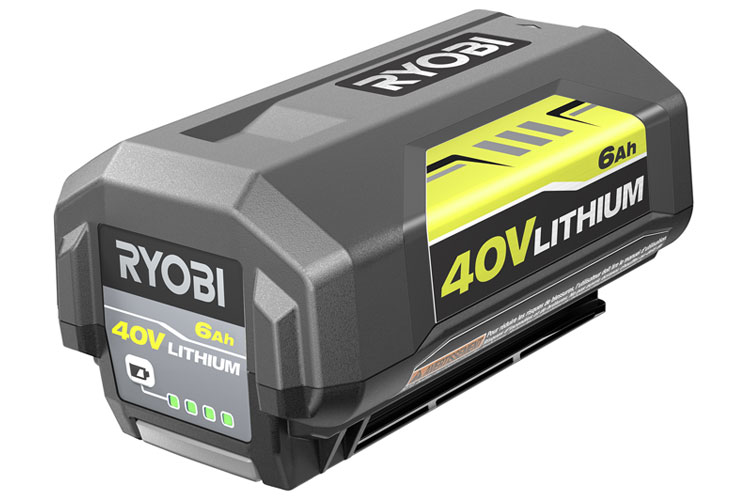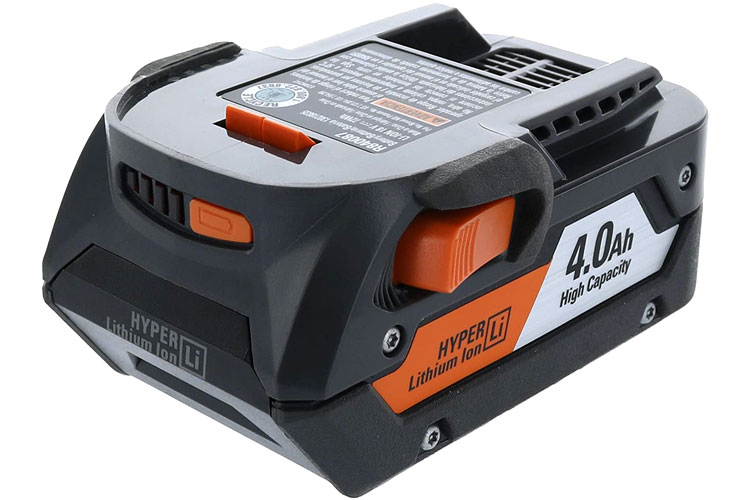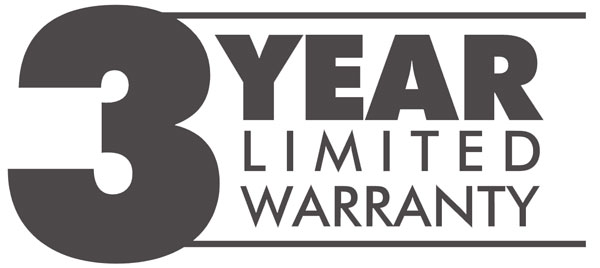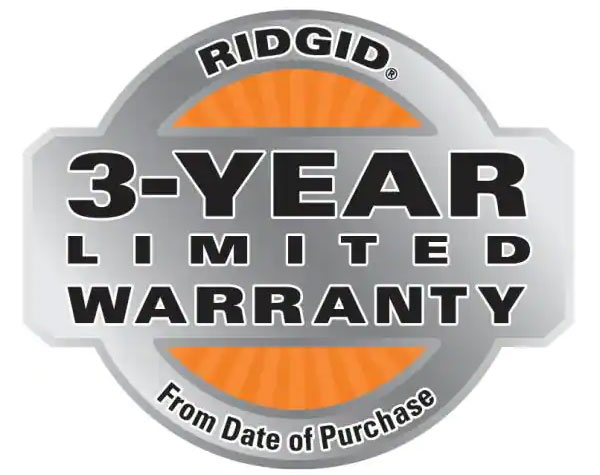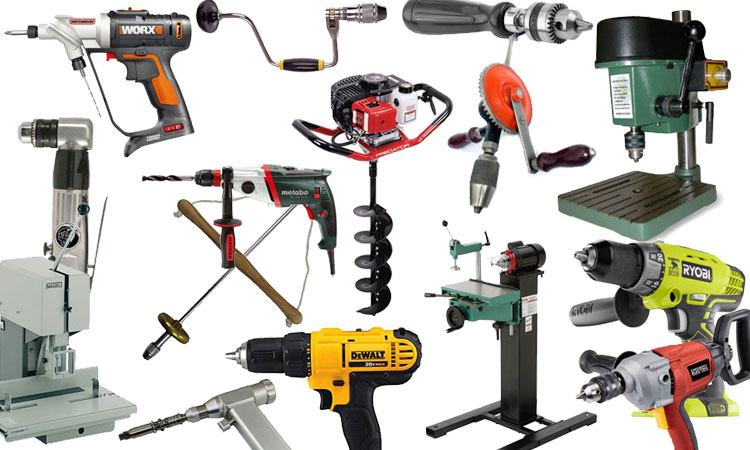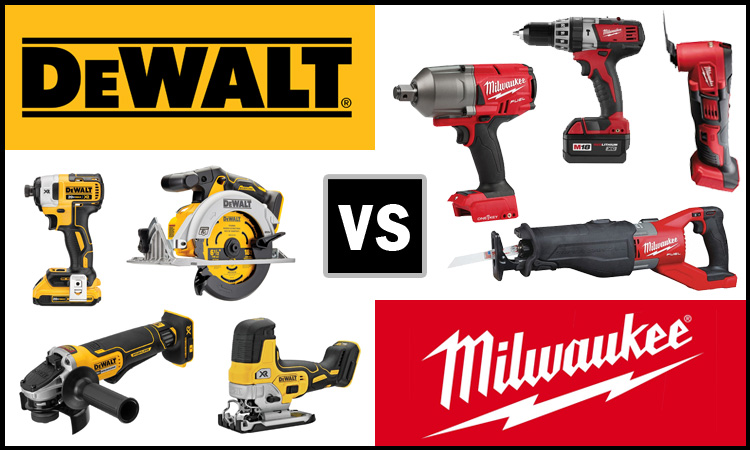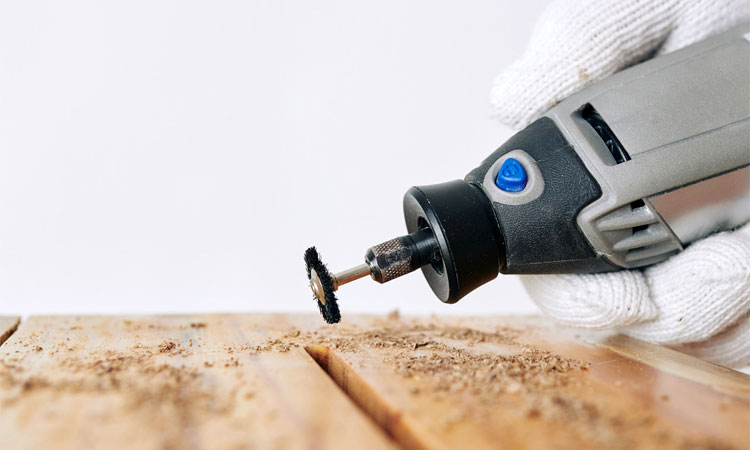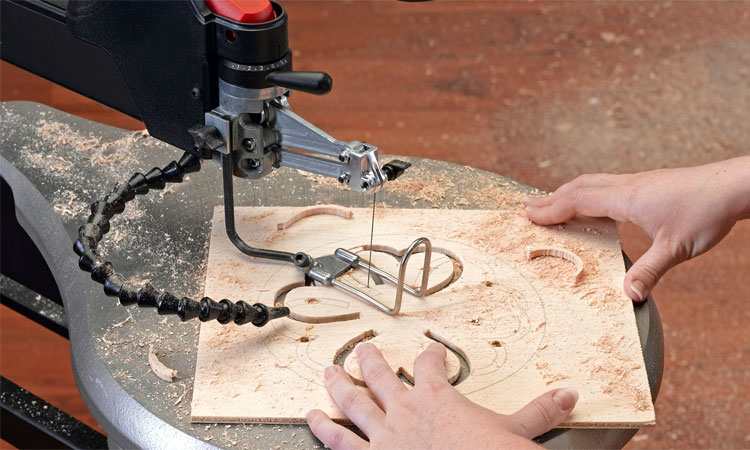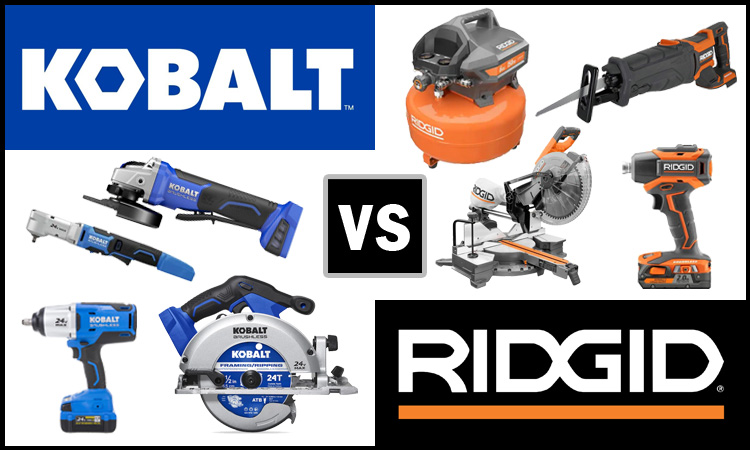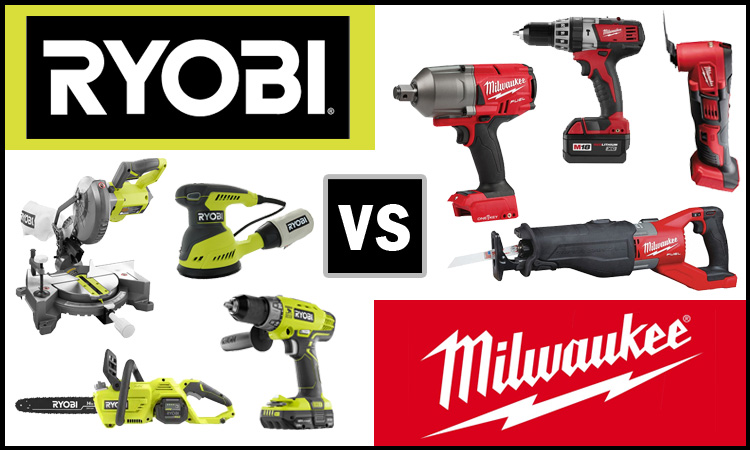Ryobi vs Ridgid (Which is Better?)
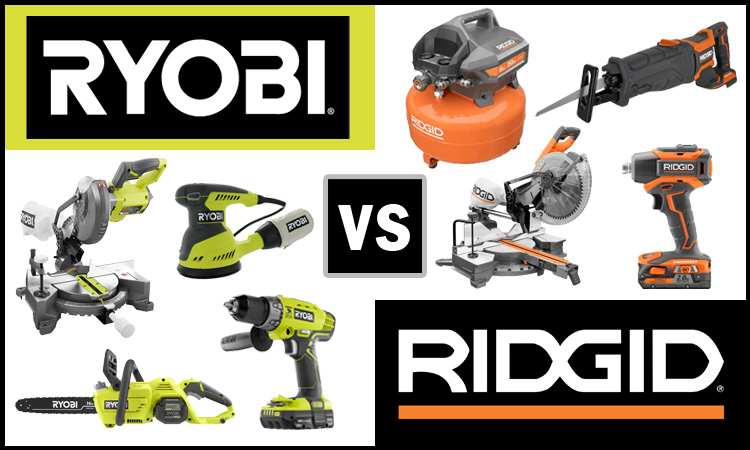
In a world where craftsmen are now provided with a near-endless array of tools to choose from, the most significant challenge often centers around determining which brand of tool is the best. Two of the most compared of all brands within the power tool market space are Ryobi and Ridgid.
Ryobi and Ridgid both carry a legacy of excellence, dating back many decades, to a time in which the modern tool industry was in its infancy. This leads many to question which of these two brands to spend their hard earned money with.
To address this quandary, we have compiled the following guide. Below is a side-by-side comparison of Ryobi and Ridgid, based upon a number of characteristics of concern. As such, one can form their own opinion, regarding each of these well-respected brands.
See Also: Ryobi vs Milwaukee
History
As mentioned above, Ryobi and Ridgid have both served as mainstays within the domestic and foreign tool industries for quite some time. Likewise, each of these two brands boast lengthy and storied histories in their own.
The following is a brief summary of Ryobi and Ridgid’s rise to mainstream popularity.
About Ryobi Tools
Ryobi Tools was initially established in 1943, as Ryobi Limited. These early days saw Ryobi producing metal die-cast products. In 1954 the company expanded its manufacturing endeavors into the world of plastic die-cast products. Throughout its lifetime, Ryobi has produced a number of interesting products, including door closers, fishing tackle, and printing presses.
Ryobi first entered into the realm of power tool production in 1968. These efforts quickly proved successful, as consumers continued to find interest in this growing world of the home improvement industry. Nonetheless, Ryobi continued to manufacture many additional products, including golf clubs.
Strangely enough, Ryobi seemed to favor the sale of other goods, outside of their power tool lineup. This led to the eventual licensing of the company’s brand to third-party manufacturers, who began producing power tools under their names.
In 2000, Ryobi first sold its stake within the American power tool market, and eventually, any remaining stakes within the company’s power tool division were liquidated to the Kyocera Group in 2018.
Today, all power tools manufactured for North American distribution under the Ryobi name are produced by Techtronic Industries. TTI is also the parent company of fellow power tool brand, Milwaukee.
Read Also: Ryobi vs Makita Tools
About Ridgid Tools
Ridgid’s history begins almost 100 years ago with the design of a new universal pipe wrench. In 1923, Carl Ignwer Sr. founded Ridgid Tool Company, which was located in Elyria, Ohio. Over the next few years, Ridgid’s product list grew to include several premium pipework and plumbing tools.
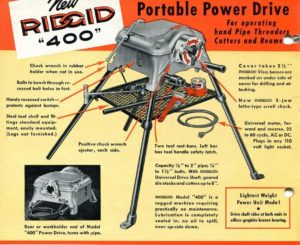
Ridgid introduced its first power tool, the Ridgid 400 Portable Power Drive to the public in the late 1940s. The Power Drive was a specialty tool that saved both effort and time for tradesmen by expediting the process of threading pipe. This design lived on for many years with further refinement.
Ridgid merged with well-known Emerson Electric in the 1960s expanding its face in the market. Shortly thereafter Ridgid acquired the Kollman Company of Erie, Pennsylvania. This acquisition launched Ridgid’s move into the portable drain cleaning market.
The Ridgid line grew exponentially during the 1990s by offering new and innovative portable pipe tools, including cutters, threaders, and pipe crimpers. In 2003, the Ridgid company released its own line of battery-operated portable power tools, joining the ranks of multiple other tool companies. The Ridgid line of power tools was best known for its portable drills and specialty impact drivers.
Recently, Ridgid has merged their lines of pipe work specific products and battery-operated products, releasing products such as the RE 6. This one-of-a-kind tool has proven versatile enough to cut wire, crimp lugs, and punch boxes, without the use of additional equipment.
See Also: Ridgid Tools vs DeWalt Tools
Manufacturing
Many consumers still stake value in the fine details surrounding a brand’s manufacturer ingredient practices. This is most evident in regards to a particular tool’s country of origin.
The following is a breakdown of Ryobi and Ridgid’s current production practices.
Where Are Ryobi Tools Made?
Ryobi Tools is headquartered in Fuchu, Hiroshima, Japan. Although one of the company’s main financial offices is located in Chicago, Illinois. The company operates several production facilities in the country of Japan, though the vast majority of Ryobi tools are manufactured in China.
As of now, Ryobi operates only one manufacturing facility within the United States. This production facility is located in Shelbyville, Indiana, and produces specialty branded accessories. In all, Ryobi operates twelve manufacturing facilities throughout six different countries.
See Also: Ryobi Tools vs Kobalt Tools
Where Are Ridgid Tools Made?
Elyria, Ohio is the headquarters of Ridgid tools, though the company’s numerous products are manufactured in both the United States and China. Most of the company’s power tools are constructed overseas, while the majority of the Ridgid brand of hand tools are still produced in the United States.
The majority of Ridgid’s power tools, such as those manufactured exclusively for Home Depot, are produced by Techtronic Industries (TTI). This is the same parent company that owns or manages many other premium power tool brands, such as Ryobi and Milwaukee.
See Also: Ridgid vs Milwaukee Tools
Product Line
Ryobi and Ridgid have both made great strides to fulfill the needs of consumers, thereby offering comprehensive lines of premium power tools. In fact, both of these manufacturers have plenty to offer the average consumer.
The following is a general overview of Ryobi and Ridgid’s product portfolios.
Ryobi
Ryobi’s lead product line is significant in size. The manufacturer’s 18V One+ series of power tools is comprised of over 260 individual tools, batteries, and accessories. This allows the consumer the ability and selection of tools to get the job done while minimizing the number of batteries and chargers that must be used. These same batteries still operate Ryobi’s tools from over 25 years ago.
Ryobi’s 18V One+ series of tools include drills, saws, grinders, impact guns, and nail guns. This same battery pack is also compatible with a wide array of specialty, battery-operated yard equipment, including hedge trimmers, mowers, string trimmers, and chainsaws. Additionally, Ryobi also offers numerous worksite companions such as radios, lighting solutions, and fans.
In addition to the One+ series, Ryobi also manufactures a line of heavy-duty 40V tools meant for taking on the toughest outdoor yard work jobs. The 40V lineup includes over 75 tools such as mowers, chainsaws, blowers, and trimmers and all operate with “gas-like” power without having to stop and fill up. The 40V Lithium battery fits all chargers and products in this lineup.
Read Also: Ryobi vs EGO (Tool Brand Comparison)
Ridgid
Ridgid first advanced into the power tool market in 2003, when the company released its initial line of battery-powered tools. Today, this line has expanded significantly, though not to the same degree as that of many other top-tier power tool manufacturers.
Ridgid is best known for its line of 18V brushless portable power tools. This line most notably includes a number of drills and heavy-duty impact drivers of every size. While their lineup of portable power tools is not as extensive as some manufacturers’ product catalogs, Ridgid still offers the mainstay products that most consumers desire.
Lately, Ridgid has also begun offering a sub-compact line of cordless power tools, which are roughly half the size of their larger brethren. These compact power tools are essential for the dedicated craftsman, who is sometimes forced into working within rather tight confines. Amazingly, these tools also retain the same 18V rating as the company’s larger alternatives.
Aside from its various power tool offerings, Ridgid also manufactures and markets a wide array of specialty hand tools and corded power tools as well. To this day, the company is perhaps best known for its production of premium pipe wrenches, from where it all began.
Technology
Ryobi and Ridgid have both stayed abreast of the latest trends in power tool design and production. This has allowed each to serve as innovators in their own right.
The following are several of Ryobi and Ridgid’s most renowned technical innovations.
Ryobi
18V One+ HP Brushless Motors
Ryobi has introduced a line of One+ HP brushless motors. These motors are designed to minimize noise and vibration while providing enhanced power and durability. These power tools offer a more ergonomic and enjoyable operating experience.
Link Storage Solutions
Ryobi has also pioneered a new and incredibly sensible way of organizing and storing various power tools. The Link Modular Storage offers consumers versatility and portability with a combination of shelves, totes, bins, and customizable hangers. All products within this series feature universal locks that apply to any Ryobi power tool.
USB Lithium Power Tools
Ryobi USB Lithium Power Tools provides cordless convenience and portability for smaller DIY projects. This line of tools consists of a portable power cutter, power carver, and rotary tool, which are all powered by a USB Lithium battery.
The compact battery features a USB-C charging port and LED charging indicator. Once charged, install the battery into any of the lithium power tools for cordless and compact portability.
Ridgid
Hyper Octane Batteries
Ridgid’s Hyper Octane Batteries place complete power tool control at your fingertips. These Bluetooth compatible batteries allow users to track a particular tool’s battery life from any location. One can also track any tool equipped with Hyper Octane Batteries, making it easier to know the status of every tool on a job site.
Compact Pipe-Tool Tech
If you are a plumber by trade or homeowner who regularly finds yourself working on pipe within tight confines, then there is perhaps no better brand of power tool to suit your needs than Ridgid.
Ridgid produces a full line of battery-powered, compact pipe tools, for use in a multitude of situations. Ridgid has you covered with crimpers to cutters, and everything in between.
Warranty and Service
Few characteristics are of as substantial value when purchasing any power tool, as a certain company’s adherence toward sound customer service. Below are the most critical details surrounding Ryobi and Ridgid’s warranty policies.
Ryobi
Ryobi maintains its reputation for producing high-quality and durable power tools by standing behind its products with substantial warranties. Ryobi backs the majority of its 18V power tools with a 3-year limited warranty.
This warranty states that any tool found to be defective in material or workmanship will be repaired or replaced at no cost to the consumer. This warranty does not cover tools that are damaged from mishandling or normal wear and tear.
Ryobi also backs their 40V Lithium-Ion battery-operated power tools with a similar 5-year warranty policy. This warranty also provides coverage against any and all forms of defects in material or workmanship.
Other Ryobi tools carry their own specific warranty such as the 3-year warranty on Outdoor power tools and 18V ONE+ Electrostatic Sprayers. While Ryobi hand tools and RYOBI Garage Door Opener motors and belts all carry a Limited Lifetime Warranty.
Ridgid
Ridgid backs its line of battery-operated power tools with a 3-year limited warranty policy. This policy covers defects in material and workmanship, at no cost to the consumer. Claims of this type can be filed by contacting Ridgid directly.
Ridgid also offers a lifetime service agreement, besides the company’s 3-year limited warranty, which provides specific coverage for any power tool, for as long as it remains in the possession of its original owner. This warranty policy also covers the failure of Ridgid battery chargers and packs.
It is worth mentioning that the above-mentioned service agreement only applies to those Ridgid power tools purchased through Home Depot. Additionally, this service agreement must be applied for within 90-days of the original purchase.
Ridgid carries other additional warranties on specific items such as:
- Limited Lifetime warranty on concrete and masonry hand tools
- Full lifetime warranty on wet/dry vacs
- 3-year limited warranty on generators, pressure washers, and gas-powered air compressors
- 3-5 years limited warranty on Ridgid pumps
Ryobi vs Ridgid: And The Winner Is…
In our opinion, Ridgid proves superior in a number of categories, when compared with Ryobi in a side-by-side fashion. However, this is not to take anything away from Ryobi, who also produces an excellent line of battery-operated power tools in their own right.
Though Ridgid offers a somewhat limited line of battery-operated power tools, those that they do offer are known for their superior durability. Additionally, Ridgid’s product catalog does include most of the most notable power tools, such as drills and impact drivers, that the bulk of consumers find favor in.
It is also worth mentioning that Ridgid offers one of the most comprehensive warranties within the power tool industry. When purchased through certain vendors, and registered as required, Ridgid power tools come backed by a lifetime service agreement. This, along with the company’s exceptional production quality, sets Ridgid apart from other similar brands.

